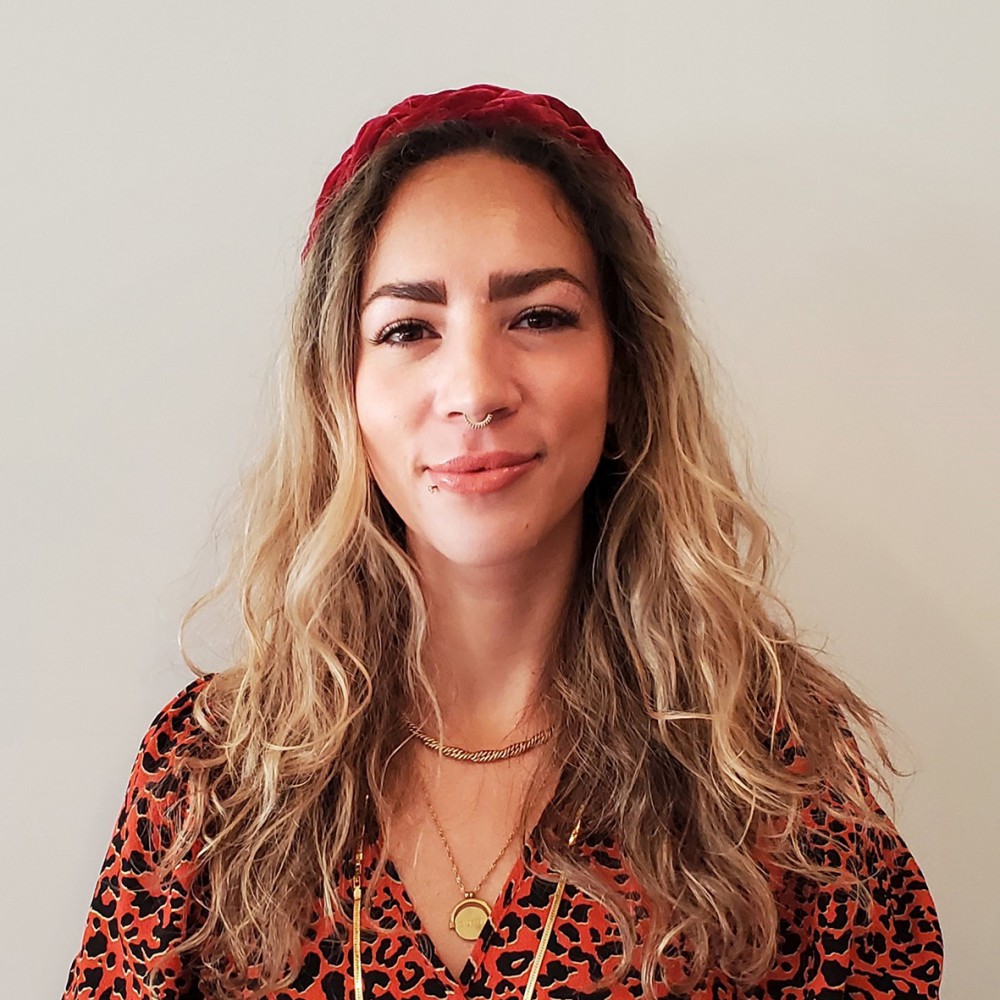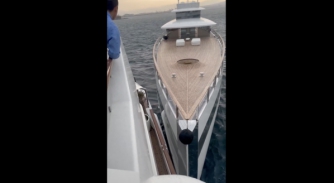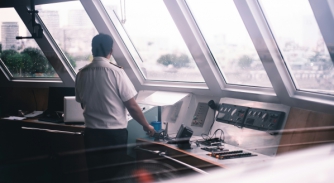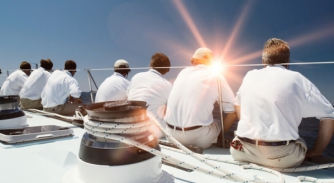Yacht crew issues expose commercial sector gaps
ISWAN's data highlights urgent need for industry reform and better support systems, so what can the industry do to help?

Superyacht crew are reporting higher levels of mental health difficulties and experiences of abuse, bullying, harassment, discrimination, and violence (ABHDV) than seafarers in other maritime industries. This not only raises questions about what yachting can learn from commercial shipping but also suggests that the traditional hierarchical system needs to be redeveloped before substantial improvements in crew welfare can be achieved. Moreover, the industry must look to those actively working to address these issues and offer their financial support.
According to the International Seafarers’ Welfare and Assistance Network’s (ISWAN) newly released YachtCrewHelp 2023 Annual Review, the proportion of contacts relating to ABHDV on YachtCrewHelp was more than double the level received by SeafarerHelp, accounting for 7.3% of all issues raised, compared to 3.1% on SeafarerHelp.
“Strictly hierarchical systems often provide a platform and an excuse for bullying behaviour,” Georgia Allen, Projects and Relationships Manager at ISWAN, tells SuperyachtNews. “It is still possible to have discipline and authority without a strong emphasis on hierarchy. Good leaders understand that.”
The findings come as ISWAN reports a 34% year-on-year increase in contacts to its YachtCrewHelp service, with the total volume of contacts now 60% higher than in 2021. Launched in November 2020, ISWAN’s YachtCrewHelp service was created in response to the lack of accessible, specialised support available to crew working in the yachting industry.
Building on expertise gained from operating SeafarerHelp, ISWAN’s established helpline for the commercial shipping sector, YachtCrewHelp offers free, confidential, multilingual support 24 hours a day, 365 days a year. As awareness of YachtCrewHelp has grown, so has its usage. Crew members from 46 different nationalities contacted the helpline in 2023. While the increase in contacts could suggest a rise in serious situations on board, Allen believes it is more indicative of the growing awareness of ISWAN’s crucial work.
“There’s always a moment of anxiety when you design and launch a new project because you don’t know if it’s going to be the right response for the problem that’s been identified,” Allen explains. “So, it’s really rewarding when you see a service being used and people benefiting from it.”
However, the review reports a concerning 116.7% year-on-year increase in contacts from those seeking work—the most common reason for crew to contact YachtCrewHelp in 2023—which is mainly attributable to the challenges that young crew, in particular, face in finding secure employment.
“Anecdotal evidence from talking to both industry stakeholders and crew themselves suggests that more and more young people are attempting to enter the industry, for very understandable reasons, but are not always doing so with the necessary training and experience. Also, understandably, boats do not want to hire crew who do not have the required skills and awareness,” Allen explains.
This is inevitably leading to a “green-crew crisis,” which is causing growing concern among industry professionals, particularly recruiters in key hubs like Antibes. The issues arising from this include young people, often away from home for the first time, facing intense competition, navigating complex social dynamics, dealing with financial pressures, being exposed to alcohol and drugs, and experiencing performance-related anxiety.
“Some end up tempted to take risks to beat the competition, such as accepting suspicious job offers or ignoring suspicious behaviour,” Allen continues. “ISWAN does receive calls from crew who have experienced ABHDV after finding a role through unregulated means, and we published our resource ‘Personal Safety Precautions for Job-Seeking Yacht Crew’ last year to try to address this worrying trend.”
The report also highlights issues such as gender disparity; data reveals that women were more than five times as likely to report an experience of ABHDV to YachtCrewHelp than men, with 14.2% of issues raised by women compared to 2.7% among men. “It is fair to assume that women are both more likely than men to be subjected to ABHDV onboard but also more likely to talk about it,” Allen says.
“Bullying and harassment are certainly increasing, as revealed in our own survey, which reported a 10% increase since 2022,” adds Tim Clarke, Director at Quay Crew. “Compared to ISWAN data, we found it far more prevalent, stated by almost a quarter of crew as contributing to their poor mental health onboard.”
There are indications of cultural and regional differences in the types of issues reported by crew. Speaking broadly, Allen suspects that European and American crew members are more likely to report ABHDV and seek help due to their heightened cultural and societal awareness of these issues. They recognise such behaviours as unacceptable in the workplace and have higher expectations that they will be properly addressed.
In addition to ABHDV, another key trend reported in the annual review is a 13.5% year-on-year increase in contacts relating to mental health, with the proportion of mental health issues almost four times higher on YachtCrewHelp compared to SeafarerHelp (15.3% of all issues raised compared to 4.0%).
The report suggests that several factors may contribute to the differences in issues reported between these sectors, including a relative lack of HR structures, support services, and union coverage available to yacht crew compared to those in merchant shipping. It can also be inferred that many ABHDV cases may go underreported, as poor mental health is often cited as a consequence of such experiences. “We have no doubt that what is reported to us is not the full picture. As the issue gets wider recognition, we anticipate that the number of cases reported to us will increase,” adds Allen.

“We cannot be there for these individuals without vital funding and support from the industry. The YachtCrewHelp service is currently at risk if we cannot secure the funding necessary to continue delivering the service without interruption.”
When considering the options available to the industry to begin mitigating and eventually solving these issues, some lessons can be learned from the commercial sector. Whilst direct comparisons of cases are difficult to make due to the differences between the two industries, Allen explains that, through ISWAN’s work, the commercial industry is beginning to recognise the importance of crew welfare for future recruitment and retention, adopting a more structured approach to supporting crews.
“We have seen a real uptick in the number of commercial companies talking to us about crew welfare initiatives and much more recognition that issues such as abuse, bullying, harassment, discrimination and violence (ABHDV) need to be addressed in a victim-centred manner and not swept under the carpet,” she says.
“In the superyacht industry, these discussions have started, but there is not much progress to date. Commercial owners are generally also more visible and held to greater regulatory standards, whereas it is not uncommon in the superyacht industry for private owners, in particular, to be protected from taking accountability for the welfare of their crew behind a wall of nigh impenetrable NDAs and privilege.”
Addressing these issues within the industry requires a strong focus on training and awareness programmes, which are crucial in mitigating the challenges reported by yacht crew members. Ensuring that crew and those responsible for them have increased access to education, training, and awareness on mental health, ABHDV, and DEI issues is invaluable. Without adequate education and awareness, crew and leaders may find themselves ill-equipped to recognise, address, or speak out against unacceptable behaviours.
“Well-rounded leadership is vital if there is going to be change,” says Allen. “Captains and HODs need a whole breadth of soft skills to get the best out of their crews and set the right culture onboard. The emphasis has always tended to be on technical ability, but this is not enough. When you consider the pressures that leaders are under to deliver a quality service to clients/owners, maintain the safety of the crew and vessel, and build a high-performing team, they surely deserve more support in the form of training and development, as well as encouragement to access talking therapy or similar.”
Allen continues by noting that whilst effective policies and procedures are essential, there should also be an emphasis on providing a psychologically safe working environment where crew members can speak out about issues without fear of losing their jobs. “The way we can help best is through YachtCrewHelp, where crew can talk about the things they can’t say to their employer, probably won’t discuss with crewmates, and may not even want to say to their family. Talking things through is often enough to de-escalate matters and enable crew to think about their options more clearly.”
Organisations like ISWAN, SEAS THE MIND, Nautilus International, the PYA, the Changing Tack Working Group, and others are collaborating to close these knowledge gaps. This month, ISWAN is launching a new awareness and behavioural change campaign, ‘Safe at Sea…it takes all of us!’, which highlights the personal safety challenges faced by women seafarers and underscores the importance of allyship in fostering safer environments for everyone.
Support often extends beyond helping the immediate crew member. External factors do affect crews and are frequently cited as contributing to a crew member’s wellbeing. “It’s not so much what is actually happening at home, it’s the fact that the crew member can’t do anything about it and is often too busy and tired to think about it because of the onboard pressures,” explains Allen. “Families have little understanding of what their loved ones do and feel helpless when they see them so tired or experiencing symptoms of depression. Our role is to listen without judgement and help reframe a problem so that it becomes more manageable, as well as provide guidance and insight.”
ISWAN is currently developing a new project specifically designed to help seafarers’ families better understand life at sea for their loved ones, as well as how to provide support and communicate with them more effectively. The Family Outreach Programme (FOP) is currently being trialled with commercial partners and will be adapted for a superyacht audience in the near future.
“A happy, healthy crew is a safe and effective crew, and we do all we can to promote positive onboard culture throughout our fleet,” adds Sarah Bayard, Lead Crew Operations USA at Y.CO, a key sponsor of ISWAN’s Welfare of Yacht Crew project. “We are so proud to have supported YachtCrewHelp since its launch in 2021 and it is heartening to see the difference it has made so far.”
However, despite the increasing reliance on YachtCrewHelp, the service, as an NGO, is currently at risk due to insufficient funding. The growing demand for this service highlights its critical importance to the industry, yet without substantial financial support, its future remains uncertain. The rise in usage clearly demonstrates the value it provides to those who are essential to keeping the industry afloat, and to ensure its continued operation and the well-being of yacht crew worldwide, substantial investment from the industry is urgently needed.
“We cannot be there for these individuals without vital funding and support from the industry,” Allen emphasises. “The YachtCrewHelp service operates 24/7/365 and is currently at risk if we cannot secure the funding necessary to continue delivering the service without interruption.”
Will Faimatea, Founder and Director of Bond Technology Management, and a member of the YachtCrewHelp steering group, adds, “I have seen through the analytics provided by ISWAN that the service is not only needed but used by crew. I would like to encourage all company owners working within the yacht industry to support YachtCrewHelp with financial contributions to allow this service to support the crew within it.”
Profile links
NEW: Sign up for SuperyachtNewsweek!
Get the latest weekly news, in-depth reports, intelligence, and strategic insights, delivered directly from The Superyacht Group's editors and market analysts.
Stay at the forefront of the superyacht industry with SuperyachtNewsweek
Click here to become part of The Superyacht Group community, and join us in our mission to make this industry accessible to all, and prosperous for the long-term. We are offering access to the superyacht industry’s most comprehensive and longstanding archive of business-critical information, as well as a comprehensive, real-time superyacht fleet database, for just £10 per month, because we are One Industry with One Mission. Sign up here.
Related news

Update: Steve Jobs’ “unmanned” yacht collides with Lady Moura
In an official update provided to SuperyachtNews, it appears Venus’ bridge was unmanned at the time of a minor collision that has sparked debate online
Fleet
.jpg)
Beyond the basics
Is the quality of crew training keeping pace in an ever-evolving technological landscape?
Crew

It can be lonely up there ... Being a superyacht captain
PYA CEO Christophe Bourillon looks at the role of the captain, from navigating challenges to enhancing excellence.
Opinion

Who captains the captains?
What can senior crew learn from the leadership training acquired from a career in the British Royal Navy?
Crew

Building the next generation
Pendennis has been running an apprenticeship scheme for over 25 years, forming the bedrock of its experienced team of employees
Crew

ISWAN begin new research project
Crew will take part in innovative on-board research using wearable and mobile technology to track the impact of social interaction on their well-being
Crew
Related news
Beyond the basics
9 months ago
Who captains the captains?
9 months ago
Building the next generation
9 months ago
ISWAN begin new research project
10 months ago
NEW: Sign up for
SuperyachtNewsweek!
Get the latest weekly news, in-depth reports, intelligence, and strategic insights, delivered directly from The Superyacht Group's editors and market analysts.
Stay at the forefront of the superyacht industry with SuperyachtNewsweek



